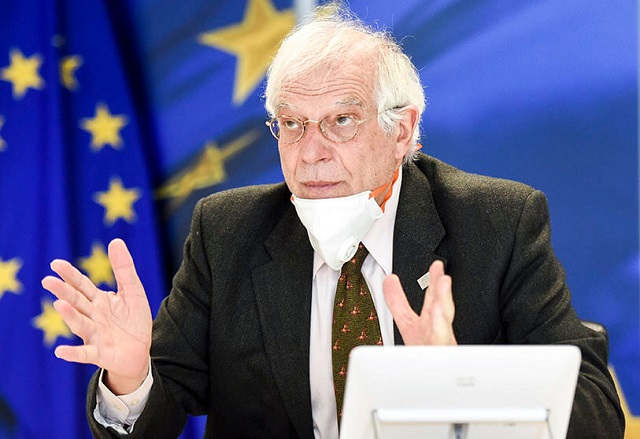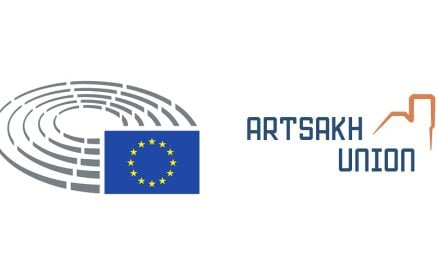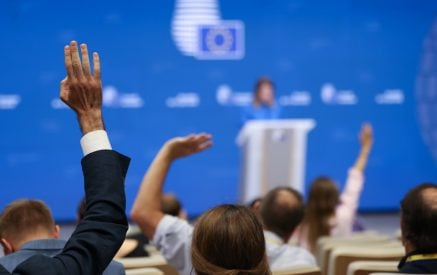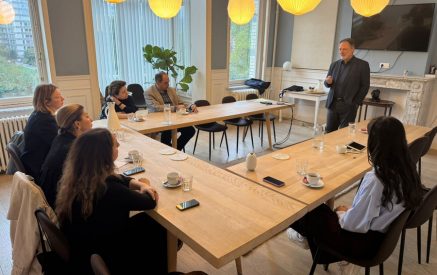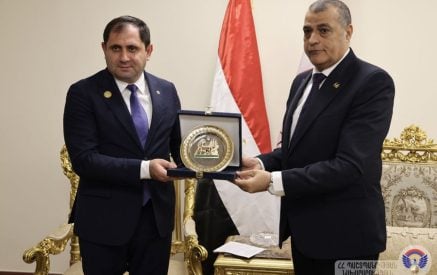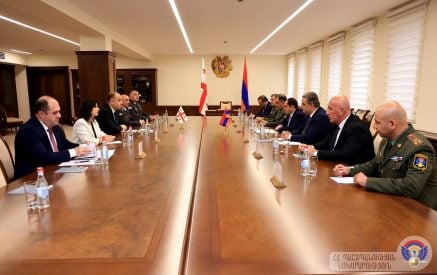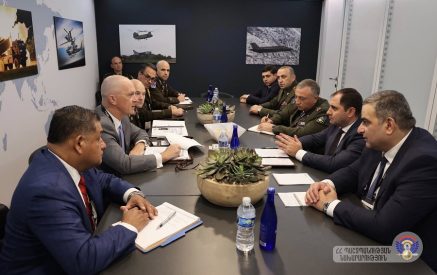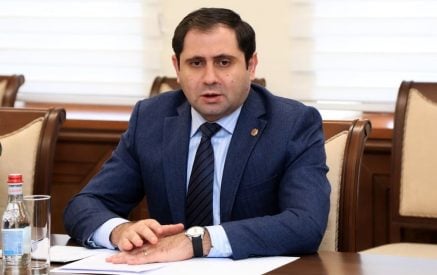Nagorno Karabakh: Remarks by the High Representative / Vice-President Josep Borrell at the EP plenary debate on the resumption of hostilities between Armenia and Azerbaijan
Thank you Mr President, Honorable Members of the European Parliament,
Members, the current military confrontation along the Line of Contact in the Nagorno Karabakh conflict zone is of our utmost concern. It is the largest confrontation since 1993-1994. We have been very engaged on this issue.
On the day that fighting erupted, I released a statement as High Representative, calling for an immediate cessation of hostilities, de-escalation and strict observance of the ceasefire. During the past days, I have had several phone calls, separately, with the Armenian and the Azerbaijani Foreign Ministers, urging both sides to stop the hostilities and to return to the negotiating table.
Read also
Our position is clear: the fighting must stop. Both sides need to re-engage in meaningful negotiations – which, by the way, have not been very fruitful in the last 30 years – without preconditions, under the auspices of the OSCE Minsk Group Co-Chairs. There can be no military solution to the conflict, nor external interference. This position was reinforced by the European Council held on the 1st and 2nd of October.
We have seen extremely worrying reports of a surge in attacks on populated areas, which is taking a deadly toll on civilians. We strongly urge the sides to fully observe their international obligations to protect civilian populations. And, with the resources we have, we have urgently allocated a small amount of money [€500,000] in humanitarian aid for the affected populations.
In fact, we do not have a lot of information about how the conflict is developing. Detailed information is scarce and there is a lot of fake news.
OSCE monitoring on the ground remains suspended, so we do not have observers. But what we observe is an increasing amount of disinformation, which is aimed at mobilising the domestic audiences in both countries and could be used to pull regional actors into the conflict. Media reports need, therefore, to be examined with great caution, because we do not have confirmation of some of the news that has been disseminated.
At this stage, further escalation of the conflict and involvement of regional actors, unhappily, cannot be excluded. This would seriously threaten the stability of the whole region.
On the 30th of September, I discussed the situation with the Russian Foreign Minister and I also spoke with the Turkish Foreign Minister – the two regional actors that are closer to the conflict. I emphasised the importance of de-escalation, the importance that regional actors refrain from any activity and rhetoric that could inflame things even further.
I spoke to the Foreign Ministers of Armenia and Azerbaijan during the weekend. I stressed that the increase of civilian casualties is unacceptable. I heard from both sides the actions taken by the other side; each one of them blames the other for starting and for attacking civilian populations, not in Nagorno Karabakh itself, not in the region in dispute, but from Armenia to Azerbaijan and from Azerbaijan to Armenia.
The fighting should stop. The OSCE Minsk Group Co-chairs are going to have meetings this week with the Foreign Affairs Ministers of the two countries, and the only way to get out of this situation is that the Minsk Group Co-chairs pushes for immediate negotiations as soon as possible.
We will continue working with key partners to try to help stop the hostilities, because the only solution is to go back to the negotiating table. But this negotiation table has been open for the last 30 years without any kind of advance. War is not an alternative; we have to push both parties to stop fighting and start negotiating without preconditions. But this is, for the time being, not the case.
I am sorry that I cannot inform you more about that, because as I said, the information is very much scarce and we have to take care not to disseminate news that has not been confirmed.
About the situation in Cyprus, I share the concerns of the Honorable Member who took the floor a moment ago. For sure this issue of Famagusta was taken into consideration at the European Council as well. The opening of this area, which is a closed area according to the ceasefire agreements under the auspices of the United Nations is a serious violation of this agreement and yesterday we issued an statement and today the 27 [EU Member States] will issue another one asking Turkey to stop doing this activity. You know that the European Council issued a statement on the situation in the Eastern Mediterranean. For sure this is not going to help. On the contrary, it is going to increase tensions and to make it more difficult to reach an agreement on an especially difficult situation for all of us on the Eastern Mediterranean.
Thank you.
Link to the video: https://audiovisual.ec.europa.eu/en/video/I-195714
Closing remarks
Thank you President, thank you to all of you for your interesting and engaging remarks.
I think your message is clear, it has been repeated 65 times with different voices, but expressing the same concerns and the same request to act.
Next Monday, I will bring your voice to the Foreign Affairs Council in Luxembourg, where we will have to follow up on the situation and see what we can decide about it.
But the European Council was very clear that they consider that the framework within which to mediate and to act on this conflict is the OSCE Minsk Group Co-Chairs. This was clearly what the European Council said. They asked me to support the work of the OSCE Minsk Group Co-Chairs – and that is what we are doing. But we have to let this group of people work, because it is the only one that has been recognised by the two sides.
I think that Mr [Reinhard] Bütikofer [Member of the European Parliament] is right when he says that there are some new things in this conflict. One is that Americans are withdrawing and Turkey is taking a stronger, much more assertive position.
The European Council also discussed about the relationship with Turkey. I invite you to read the conclusions of the European Council, which say that in December, we will take stock of the evolution of the situation in the Eastern Mediterranean and all the conflicts in which Turkey is more or less involved, in order to take decisions on how we continue our relationship with Turkey.
We are going to continue calling for a ceasefire. I will bring your voice to the Foreign Affairs Council. We will remind the two sides of their obligation to protect civilians under international humanitarian law. And we will keep working, also with Turkey, in order to build a constructive contribution to the conflict settlement and help the efforts to stop the hostilities.
We have a Special Representative for the South Caucasus [Mr Toivo Klaar], who is there and who is in touch with the two sides of the conflict.
Yesterday, the Turkish [Foreign] Minister [Mevlüt Çavuşoğlu] was in Baku, and I was really concerned when I saw that he was expressing full support to Azerbaijan. My last talk with Azerbaijani Minister [Jeyhun Bayramov] was also very worrisome, because he was clearly saying that the fight will continue until Armenia accepts a concrete schedule for withdrawing from Nagorno Karabakh, which is a precondition for conversation, for talks. It is very difficult. The situation is really becoming worse and worse.
All of you have been asking to act, but I have heard very few concrete versions of the verb ‘act’. What do you mean by ‘act’? We will do whatever we can do in order to support the OSCE Minsk Group Co-Chairs, which is the framework that the European Council decided to support in order to look for a negotiated solution, pushing both sides to stop the fighting, and especially putting pressure on Turkey to not continue to intervene. But to ‘act’ – if you mean by ‘act’ taking military action – is completely out of question.
We are going do what we can do as the European Union, with the resources we have in the diplomatic arena. The European Council has decided to see what is going on from now until December to review our relationship with Turkey. This is what the European Council decided after a long discussion on our relations with Turkey. I have to stick to that. I will obey and I will try to implement the mandate of the European Council in order to support the OSCE Minsk Group Co-Chairs that I hope this week will have meetings with the Foreign Affairs Minister of Azerbaijan and I hope with the Foreign Affairs Minister of Armenia as well.
Thank you.
Link to the video: https://audiovisual.ec.europa.eu/en/video/I-195715
European Union




















































